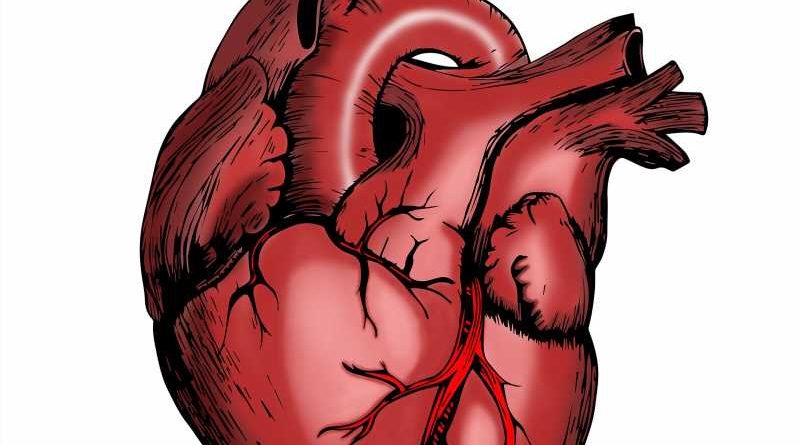Genes involved in heart disease are similar across all populations, study finds

The genes involved in coronary heart disease, the most common form of heart disease, appear to be nearly the same for everyone, according to a VA study.
Roughly one-third to one-half of everyone’s chances for developing this type of heart disease are rooted in their genes. This genetic risk seems to be the same across all major racial and ethnic backgrounds, including people of European, African, Japanese, and Indigenous ancestries, the VA study found.
“Some groups, such as African Americans, are more likely to suffer from heart disease, and our findings indicate that’s not because they have a higher genetic risk for the disease,” says study author Dr. Catherine Tcheandjieu, a genetic epidemiologist at the VA Palo Alto Health Care System and University of California San Francisco. “It confirms that other factors are responsible for more heart disease in those populations, such as access to health care and different lived experiences,” she adds.
The genetic study—the largest to date on heart disease—was published August 1, 2022, in Nature Medicine. It looked at nearly a quarter of a million cases of coronary heart disease, including more than 100,000 U.S. Veterans with the disease.
Coronary artery disease is the leading cause of death in the United States, responsible for one in every five deaths. It occurs when major blood vessels to the heart muscle become narrowed or blocked, which can lead to heart attack.
The study was led by investigators at the Palo Alto VA and involved researchers from several other VAs across the nation.
Research into the genetics of heart disease, like many other areas of health research, is mostly based on data from white people because of higher participation.
The Nature Medicine study, on the other hand, examined the genes of more than 27,000 Black and 12,000 Hispanic people with coronary artery disease. Most of these were Veterans, who agreed to share their genetic and health information for research as part of VA’s Million Veteran Program, also known as MVP.
With data from MVP, VA researchers in this study confirmed for the first time that many genetic variations known to heighten heart disease risk in white people have the same effect in people of African and Hispanic ancestry. Additionally, researchers found nearly 100 new locations on the human genome where variations appear to increase risk of coronary artery disease.
To find these locations in the human genome that are linked to heart disease, researchers in the study carefully looked at the genes of nearly a quarter of a million people with heart disease and compared them to more than 840,000 people without the disease.
“Ours is the first genetic study of coronary artery disease that had enough people of African and Hispanic descent to confirm previous findings in white people,” says corresponding author Dr. Themistocles (Tim) Assimes, a cardiologist and researcher at the VA Palo Alto Health Care System and Stanford University. “This was directly because of VA’s Million Veteran Program.”
Among nearly 900,000 Veterans in MVP, close to 150,000 are Black and more than 70,000 are Hispanic, making MVP one of the richest sources of data available for genetic research on all people, including those from diverse racial and ethnic backgrounds.
In 2007, researchers identified a gene termed the “heart attack gene” that can lead to up to a 50% lifetime chance of developing heart disease. For more than a decade, researchers have known this gene is linked to higher chances of early and more severe heart disease in white, South Asian, and East Asian populations. But genetic studies never had enough people of other ancestries to determine whether the same held true for other populations.
That is, until now.
As part of the Nature Medicine study, VA researchers were able to show that the region of DNA where this “heart attack gene” sits appears to play much less of a role in altering the risk of disease among people with African ancestry, including a majority of African Americans and many Hispanics.
This is because the genetic miscoding, also known as a genetic variation, does not exist in people with African ancestry.
“It’s possible other ‘heart attack’ genes exist in Black populations,” Assimes adds, “but to find out, we need to do more research and make it a priority to invite many more people with African origins to participate in our genetic studies.”
Researchers from this study used their findings to create new genetic tests to better predict who might develop coronary heart disease in the future. These new tests are not much different than cholesterol, blood pressure, and diabetes tests, except they provide an idea of how high or low someone’s inherited risk of heart disease is from birth.
“The impacts of this study on health care are happening now,” explains Tcheandjieu. She acknowledges, however, more fine-tuning needs to be done to fully capture genetic risk in Black people.
“The best way to improve these genetic tests, also known as polygenic risk scores, is to study more people of African background such as African and Hispanic Americans, as well as people from Africa. This will allow us to discover all the miscodings in genes that increase risk for heart disease in diverse populations and make sure these tests capture that,” says Assimes.
An important next step is to see how well these new genetic tests accurately predict one’s risk for heart disease, say the researchers. The way to do that is through clinical trials, where researchers compare health outcomes for people who received genetic testing compared to people who didn’t.
Source: Read Full Article



